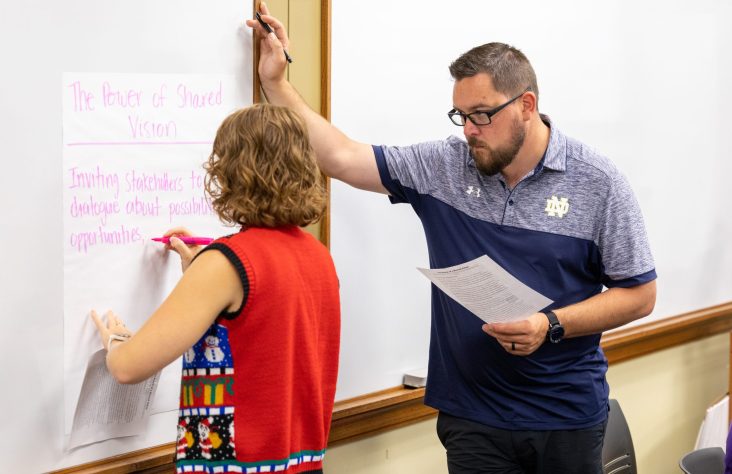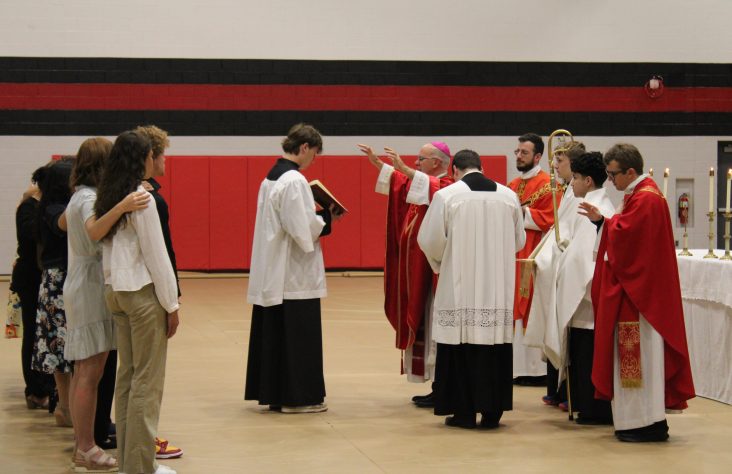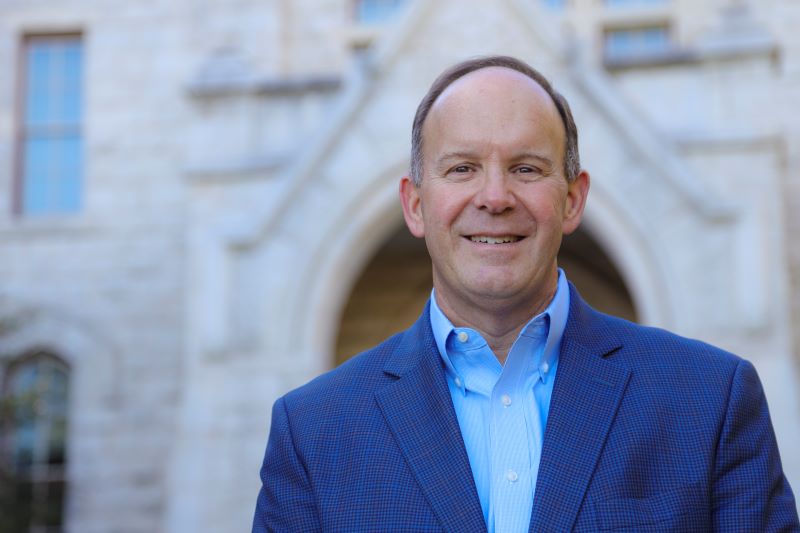August 2, 2022 // Diocese
New Holy Cross College president looks to the future
In 2017, the new leadership of Holy Cross College was entrusted to Father David Tyson, CSC. Under his direction throughout the last five years, the school has found financial stability, deepened its Catholic identity, expanded academic offerings, and built foundations for the future, all while remaining true to its original ideals of providing personalized attention in a small higher educational environment.
Following the completion of Father Tyson’s term, a search committee identified and confirmed the appointment of the next President of the school, Dr. Marco Clark, who previously served as the Executive Director of the Holy Cross Institute at St. Edward’s University in Austin, Texas. Clark is the first non-Holy Cross priest or brother to lead the school; however, he has been deeply formed by the spirituality and charisms of the Congregation throughout his life.
Raised Catholic, he attended Bishop McNamara High School in Maryland, a college-preparatory school sponsored by the Brothers of Holy Cross, Moreau Province, and even for a time discerned the call to religious life. He shared, “I knew I wanted to be with Holy Cross. The brothers and priests helped me to discern my vocation as a husband, father, and Catholic educator. Over the last thirty years, it has been a blessing and joy to serve in higher education and high schools sponsored by Holy Cross.”
When asked what he appreciates most about a Holy Cross education, Dr. Clark responded, “In the example of Blessed Basil Moreau, founder of the Congregation, we strive to help bring young people to completeness – the complete person is the one who has been formed into the image of Jesus Christ.”
This “education for completeness takes place uniquely at Holy Cross College through one-on-one formation and mentorship,” Clark shared, “from day one, students here are assigned a first-year mentor, someone who is going to guide them through their early years of college in an intentional, personal way. Then they are handed over to a career coach, who will help them secure internship placements and work with them even beyond graduation. That’s unique. That integrated coaching approach is something we want to build on and something the world needs; that young people today in particular need desperately. They need mentors. They need people who are going to love, encourage and nurture them, while also challenging them. Given our focus on integrating these principles within a Catholic context and community, I think Holy Cross College has a chance to do this exceptionally well.”
He continued, “Holy Cross College is known for small class sizes, with a real emphasis on the individual and meeting students where they are. Although we have a small student body, students come to us from all over the country and all over the world. In what we do as educators, we serve as witnesses to what Pope Francis repeatedly refers as a ‘culture of encounter with the living Christ.’ We create this culture of encounter and make the living Christ visible to our students by the way we know, love, and serve them. I think that’s the essential DNA of Holy Cross College and the Congregation of Holy Cross.”
Known as the Holy Cross “Saints,” Clark addressed how the experience at Holy Cross is meant to produce saints to transform the world. “Our world today is so terribly divided and polarized, we need to enter into cultures of dialogue, to listen charitably and respectably. I think Holy Cross has a chance to distinguish itself as a place where healthy, invigorating dialogues can occur for the hope and healing of the world. In our culture today, people are not listening to each other, people are not respecting each other. We want to help produce the next generation of leaders who are going to sit in tomorrow’s boardrooms, be tomorrow’s politicians, serve as tomorrow’s teachers, be the next leading journalists, and be involved in the arts. These leaders will also respond to the call to live as men and women religious or be the next parents of future generations. As they set out on their vocational path, we seek to help these men and women become scholars, virtuous leaders, and productive citizens, with a mentality of discipleship that will sanctify the world and produce many saints.”
The best news. Delivered to your inbox.
Subscribe to our mailing list today.







